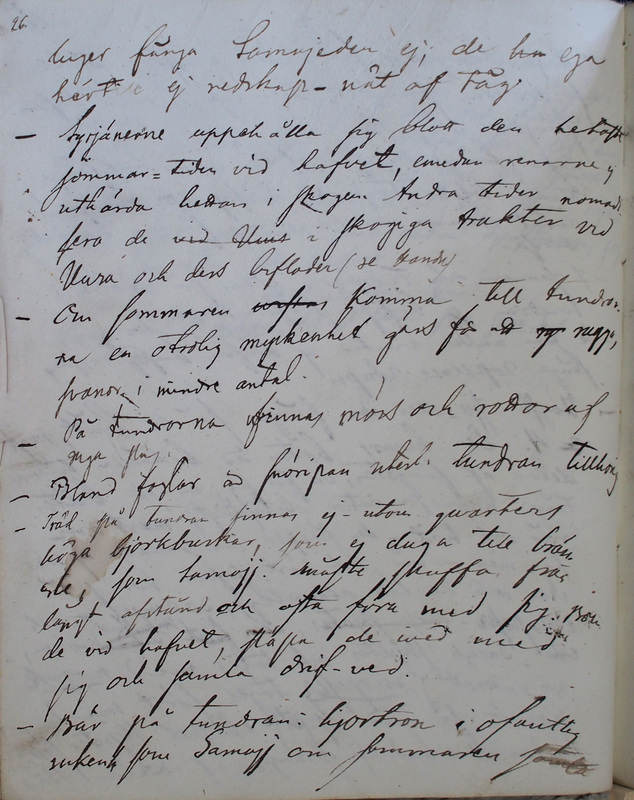Ethnographiska, historiska och statistiska anmärkningar. 026
Title
Description
| luger fånga Samojeder ej, de ega här ej redskap - nåt af tåg. |
The Samoyeds do not hunt beluga whales; they have no equipment – rope nets – for it. |
| Syrjänerne uppehålla sig blott den besätte sommar=tiden vid hafvet, emedan renarne ej uthärda hettan i skogen. Andra tider nomadi- sera de i skogiga trakter vid Uusa och ders bifloder (se handl[ingen].)
Presumably, Castrén is referring to his own texts about the reindeer-herding Komi, the so-called Ižma Komi. See Castrén 2019: 517–523.
|
The Syrians only reside by the sea in the summertime, because the reindeer cannot endure the heat in the forest. At other times they nomadise in the wooded areas around the River Uusa and its tributaries (see document.) |
|
Om sommaren komma till tundror- |
In the summer an incredible number of geese come to the tundra to mate, swans in smaller numbers. |
|
På tundrorna ufinnas möss och rottor af |
There are different kinds of mice and rats in the tundra. |
|
Bland foglor är snöripan utesl.[uteslutande] tundran tillhög.[tillhörig] |
The willow grouse is the only bird that belongs to the tundra. |
|
Träd på tundran finnas ej - utom qwarters |
There are no trees in the tundra – except birch bushes a quarter of a metre high, which are not suitable for burning. The Samoyeds have to obtain firewood from a long distance and they often drive by the sea, settle there, and collect driftwood. |
|
Bär på tundran: hjortron i ofantlig |
Berries in the tundra: cloudberries in immense quantities. The Samoyeds gather them in the summer |

